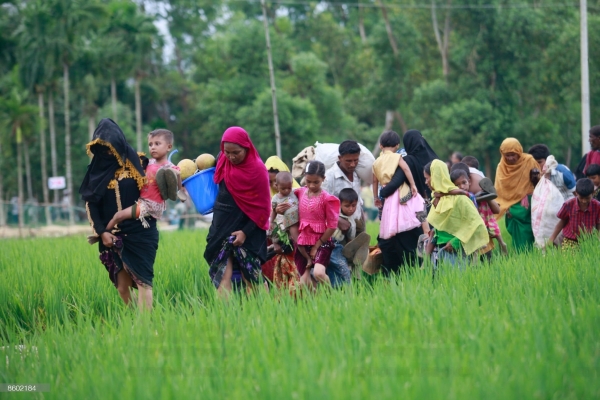Between February 2021 and April 2023, at least 3,452 people died at the hands of the army and its affiliates, 21,807 people were arrested and 5,839 were sentenced without respect for judicial guarantees. 15.2 million people are in need of food aid. One third of the population, 17.6 million people, require some form of humanitarian assistance, a huge increase from the one million before the coup.
A key consequence of the military junta's seizure of power is that security for aid workers has deteriorated dramatically. Aid workers are at constant risk of arrest, harassment or other ill-treatment, or even death, said UN human rights spokeswoman Ravina Shamdasani. Up to 40 aid workers have been killed, 28 injured and 212 arrested, although it should be noted that these figures probably represent a fraction of the reality. Instead of seeing aid workers as actors who deserve special protection, the military sees them as part of the population opposed to their government.
The military applies the 'four cuts' strategy, first developed and implemented in Myanmar in the 1960s. This consists of cutting off insurgents from their main sources of funding, food, intelligence and recruits. This strategy is based on tactics that include the burning of entire villages, the use of air strikes and artillery shelling, landmines and military checkpoints, as well as arbitrary arrests, enforced disappearances, torture and ill-treatment. Its systematic implementation has resulted in the mass displacement of more than one million people. Since the beginning of 2023, the targeting of internally displaced persons has increased. On 11 April, military air raids in Pazigyi killed 168 people, including women and children. In implementing its policy, the army has killed and injured thousands of civilians, while destroying property and essential infrastructure, including shelters and medical centres. In violation of international law, the army has used a comprehensive system of military measures and exploited the legal and administrative spheres to target humanitarian operations, forcing aid workers to stop assisting people or to do so at great personal risk. "The military leaders are trying to sell a climate of fear to the vast majority of the civilian population to deter them from providing any form of support to armed groups, or to frighten them into supporting or at least accepting the military as the rulers of the country" said James Rodehaver, head of the OHCHR team in Myanmar. The military junta has denied targeting civilians, saying its operations are against "terrorists'' trying to destabilise the country.
"The deliberate obstruction or denial of humanitarian assistance may amount to gross violations of international human rights law and serious violations of international humanitarian law, " said Ravina Shamdasani.
To read more, please visit:
https://news.un.org/en/story/2023/06/1138262
by Elena Ricci







